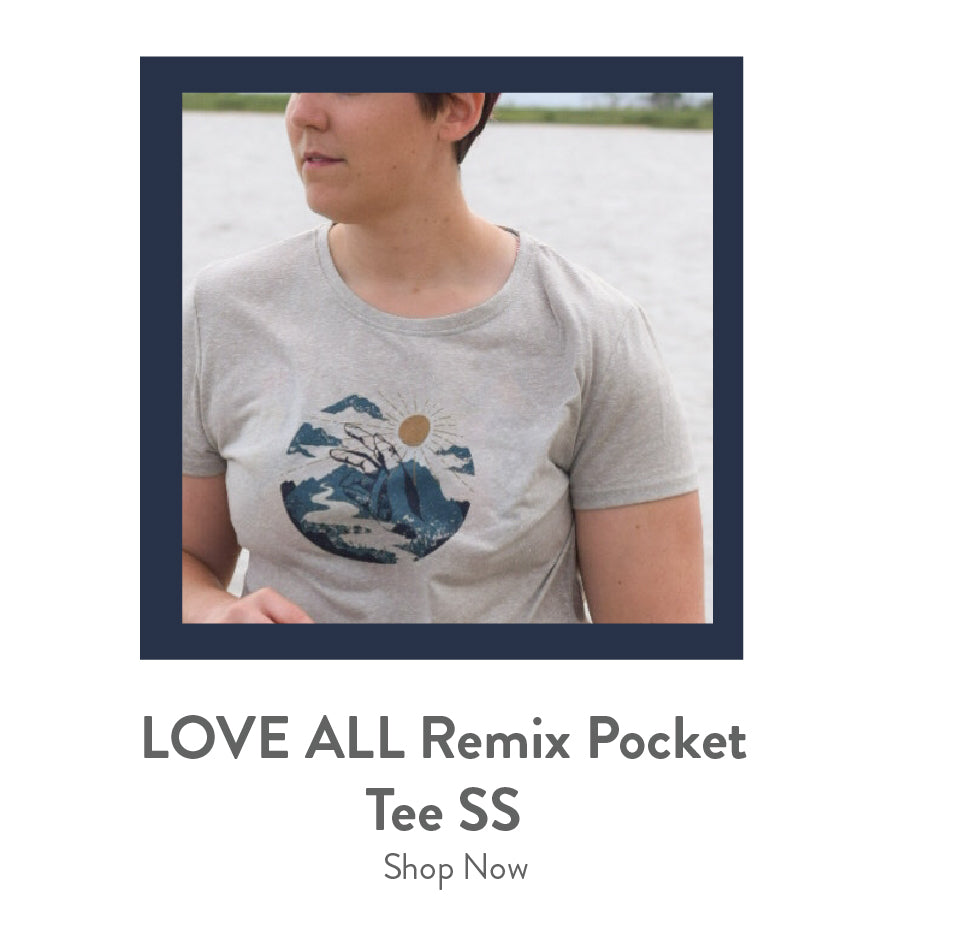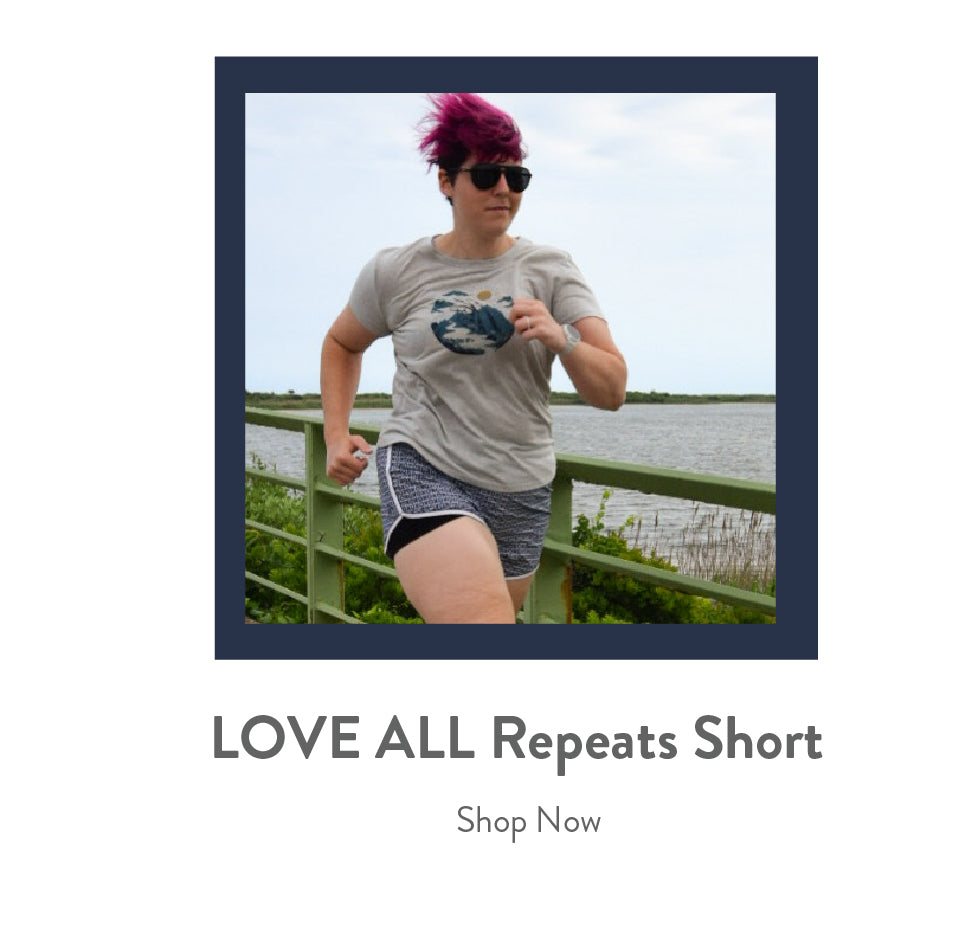RADrabbit Meg Leach learned to enjoy running, rather than fight it, when they stepped off the road and farther into the woods. While they’ve found a place among the trail and ultra community, Meg believes there are important ways that the sport can evolve to bring about more inclusivity and visibility for trans and non-binary athletes. A writer of romance novels based in Long Island, New York, Meg sees meaningful allyship and acceptance as important steps toward a brighter future. Learn more about Meg and their journey in the full interview below.
__________
Eric: Meg, how’d you get into the sport of running?
Meg: Running has always been an accessible form of activity for me. I live in a bigger body. I think for a lot of people who live in a bigger body, and for people who were assigned female at birth, that is a combative sense of existence. So, I started, as most people do, with the 5k distance, while in college. That felt like I was fighting running more than enjoying running. It wasn’t really until after–I graduated college in 2013–I kept that combative form of running up through the marathon distance. That combative form of existence broke my body. I ended up with overtraining syndrome–something that’s talked about a lot more. I was sidelined with that and stopped running for about a year.
When I decided that I was ready to come back and engage with this sport that I love, even though it had been combative, I wanted to do it in a much more sustainable way. The trail running community really focuses on that sustainability in a unique way, there’s a lot more acceptance. I didn’t know about trail running until a couple of winters ago, probably around 2018. I was running on a treadmill at Planet Fitness. I started with watching Ginger Runner, I think it was “Among the Evergreens”. I actually came upon your story about trying to get a golden ticket. That was how–I was like, oh, wow, I don’t have to run on roads where it’s hyper-competitive and where everyone kind of hates each other in this weird way [laughs]. It can be a community event and a team event. That’s what I love about trail running–you can turn this solitary sport into a team event.
Eric: Yeah, the trail and ultra running community are great in that way. If I found the Meg that is you on the internet, you’re a writer.
Meg: I am. I’ve been a journalist for many years. During the pandemic I quit my day job as a PR person, and now I write novels.
Eric: If you were to categorize your writing, broadly, what’s your genre?
Meg: Broadly, it’s romance. I’ve narrowed it down because I kept jumping on different themes and my editor was annoyed with me. I usually attribute my writing to altruistic, strong female leads. I really focus my writing on telling a unique story through–the romance genre has a lot of patriarchal story types. That’s something–I also read romance because it’s not soul sucking, and the world is soul sucking enough [laughs]. But there’s a lot of patriarchy in that, so I like to focus on strong female leads who have personality. I often say that I write about loose women who drink too much [laughs]. I don’t think there’s a need to have these stereotypical ideologies.
Eric: As someone who identifies within the LGBTQ+ community, what does it mean to you to have a brand that wants to amplify your voice?
Meg: Not just as someone in the LGBTQ+ community, but as someone non-binary, this year, in particular, sport has become hostile to trans people in a way that a lot of us thought wouldn’t happen. I think a lot of people in the trans community saw the warning quakes before a tsunami, but you always kind of hope that you can get out of the way fast enough or a break will stop it. I’m from an island so oceanic terminology works for me. But, it never did, to the point where we’re seeing violence at pride events, which happened in Idaho recently.
Full disclosure, I’m not medically transitioned at all, just socially transitioned. That means I’m in the body I was born in. Not that that matters–but it does mean I’m able to pass in different ways. So, for most people, I slip under the radar as far as the violence against trans people. But, you know, as we came out of the summer Olympics two years ago with two runners who were disqualified because they had too much testosterone in their bodies. We see a lot of violence against trans women, and specially trans women of color. To have a company reach out to me knowing that I am a trans, non-binary athlete is huge. Visibility is so important in the sport.
Eric: Within the sport of running, what do you see as positive steps forward, for the trans community but the pride community as a whole?
Meg: Meaningful allyship is probably the biggest one. Right now we see so much rainbow washing, especially around June. We see companies who are happy to fly a rainbow in the summer but still participate in donating to objectives that get trans people hurt and killed. Let’s just be honest. The fact that there are states where I can’t go into the bathroom of my choice, it’s kind of a rough thing.
Also, Nikki Hiltz really had a powerful statement this morning. They were in a race and the announcer of the race didn’t use their correct pronouns. That’s not–you know, I can’t speak for Nikki, but if someone doesn’t use my correct pronouns–I get called “she” a lot–as long as it’s not being done in a hateful way, I roll past it. But other people hear that and it’s a violence against them and their identity. When you can see representation, it makes the entire community safer. We tend to think of running as a very safe place but when there’s no representation, even if everyone has the best intentions, people aren’t going to be their authentic selves.
Eric: That’s a good point. You mentioned the issue of which bathroom you can use. Can you explain that further?
Meg: There are so many states that mandate which bathroom you can use, and it coincides with what’s on your license or birth certificate. Based on that, trans people, if they can’t pass–passing being you look like what bathroom you should go into. Gender is a very fluid thing. Ultimately, I don’t identify as a woman. I prefer a unisex bathroom.
Eric: Thanks for explaining that. And what has the journey to become your most authentic self been like?
Meg: Yeah, I appreciate you asking. So, the biggest problem is that a non-binary identity was a thing until I was about twenty-seven years old. A lot of people, older people, might say it’s “in” or it’s “new”, and things like that. It’s not new, especially when you’re in the community, but I grew up in a small town east of Boston–predominantly Catholic, predominantly Italian and Irish and Portuguese, so very religious, God-fearing people. There was slight gay representation but there wasn’t much gender diversity to speak of. Even in college, there were things like the gay-straight alliance, and I had a friend who was a drag queen at the time. But even with that sort of experience, trans identities were still well within the gender binary. When I became more a part of this community, when I joined roller derby [laughs] after I graduated college, one of my teammates was non-binary. I was like, yo, this is a thing?
I was always a tomboy, I had always been bi- or pan-seuxal–I’d say I don’t care about the plumbing, it’s more about the person [laughs]. So I had always vacillated between extremes on the spectrum. I didn’t know that being anything other than being a tomboy–which is still a woman, a masculine woman–was a thing. Then, one of my friends was non-binary and I learned that I didn’t have to exist in this binary spectrum, which is an uncomfortable place for me to exist. Why do I have to be one or the other? Why do I have to wear a dress or pants? I learned that there could be a place for me outside the binary. I could be both, I could be all or nothing, I could make a space for myself within the community and outside the binary. That’s where I could be my authentic self. But this is still somewhat new to me and I’m learning more every day.
Eric: I think some people have a hard time understanding what you just described, it’s easy for them to identify as male or female. Could you elaborate as to why it’s important for you to be outside the binary designations?
Meg: Of course. It’s a fair question. The way I describe it, and we’re runners so this will probably sit, is that you’re running an ultra. You’ll start with shoes that are your walking shoe size. For me, that’s a men’s 8.5. It feels alright for the first 50k. After 50k, you could probably push it to 50 miles, and maybe lose a toenail, but after about 50 miles, that shoe is going to get really tight. Although it’ll serve you while walking, or for the marathon distance, when you really need it to work for you to go longer, it’s going to start failing. So, you need a different size. Existing outside of that binary–and you could wear those shoes, you could rock those to the 100-mile distance, but it’s not going to be comfortable. Identifying as non-binary is giving myself access to the full spectrum of shoes that I need to get through the race.
Eric: That’s a great analogy, especially for runners. As a final question, within society as a whole, what would progress look like, or what would the world look like, ideally, for your community?
Meg: Everything gets dire when you talk about the trans community. We’re always talking about life or death situations. But it is dire when we don’t let trans people participate in sports, when we cut off trans people from visibility–we know the statistics for suicide attempts for trans people, so it really is a fight for our lives. I hate that everything has to be so dire–I’m a happy person and I like being me and what I can give to the world and share with the world, and I like sharing a positive message when I can. I like sharing this identity and how fun it can be–it doesn’t have to be dire all the time. However, it is dire.
So, more acceptance. For example, having more non-binary and gender fluid options for races. For me, I’m not an elite runner so I’m not fighting for a podium spot, it doesn’t matter. But, ultimately, we need that. We need a podium for non-binary people. I don’t think it’s conscionable anymore for trans people to sign up with the gender they were assigned at birth. Trans people should be able to race under their gender. That has to come first because if that’s available, the visibility will be available. This is specifically a non-binary issue because until we have a place to run, we won’t be visible because there nowhere for us to run. It’s knowing you’ll be safe.














